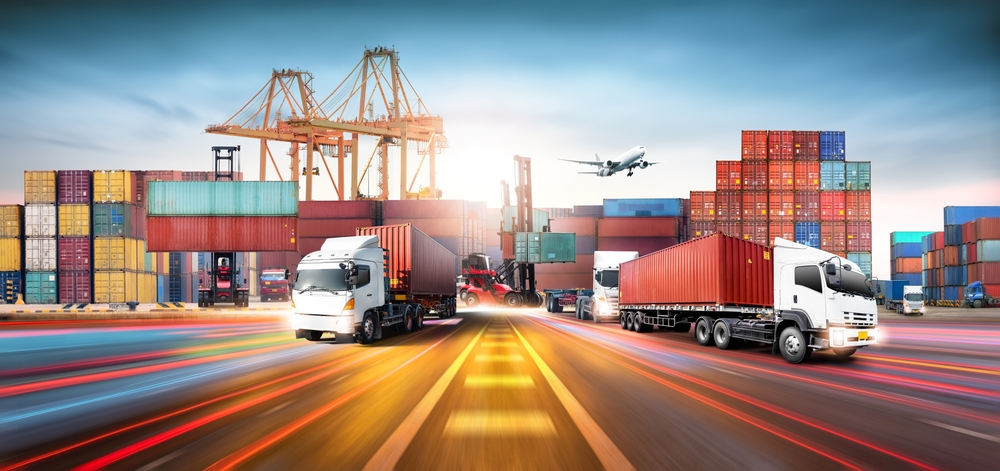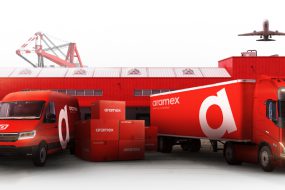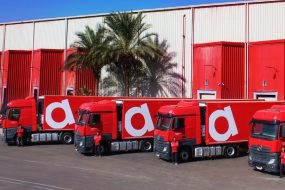

Multimodal transportation is an integrated logistics system that combines multiple modes of transport to move people and goods from one location to another efficiently. This approach goes beyond conventional trucks and buses, encompassing air, sea, rail, and road, along with micro-mobility options like bicycles, scooters, and e-bikes.
Multimodal transportation ensures seamless transitions between various transport modes by harnessing an interconnected mobility infrastructure. This optimises the movement of people and goods, providing a reliable and efficient solution that logistics professionals can trust.
Why multimodal transportation is important
Companies seek high-quality global shipment services in today’s increasingly complex world. While a single mode of transport may sometimes suffice, it often falls short of meeting the demands for safety and timeliness. Offering a range of shipping options enhances the safe and timely delivery of goods worldwide.
Shipments frequently travel thousands of kilometres, and utilising multiple transportation solutions—such as air, truck, and sea—ensures greater efficiency. Asystematic review of synchromodal transportation, a concept that involves the dynamic selection of the most suitable transport mode based on real-time conditions, highlights how collaboration between shippers and freight forwarders enables real-time switching between modes, increasing flexibility and sustainability. In addition, theEuropean Union’s reliance on multimodal transportto meet sustainability goals underscores the growing significance of this approach in future logistics.
Advantages of multimodal transportation
Reducing traffic congestion
Harnessing shipping options that are more peculiar to the unique requirements of the distinct phases of the logistics journey will help to collapse time, reduce traffic congestion, and speed up product delivery. This improves shipping efficiency, cuts costs, and strengthens overall supply chain performance.
Environmental benefits
Multimodal transportation reduces potential environmental risks, contributing to a greener, more sustainable future. Shifting goods from trucks to water, air, or electric rail transport not only lowers energy consumption but also significantly reduces noise pollution and carbon emissions, inspiring logistics professionals to adopt more eco-friendly solutions.
Enhanced accessibility and connectivity
Multimodal solutions also enable logistics companies to adapt to evolving market demands while staying responsive to the growing business landscape. By connecting stakeholders globally and providing efficient, accessible transport for businesses, this approach ensures timely product delivery, reduces road wear and tear, and mitigates vulnerability to disruptions caused by natural disasters or unforeseen events.
Flexibility for users
With a multimodal transportation option, if one transport method is being delayed, users can easily switch to a more available option to ensure timely delivery of goods. In addition, the strategic deployment of a wide array of transportation modes helps to reduce the potentially high cost of transporting goods, thereby enabling access to more economical options peculiar to aspects of their logistics journey that save costs.
Impact on urban development and sustainability
Multimodal transport solutions are vital in urbanisation and significantly impact urban development and sustainability. By tackling key challenges such as traffic congestion and reducing greenhouse gas emissions, multimodal transportation creates smarter, more sustainable cities. It also engages logistics professionals in understanding the societal impact of these solutions.
Traffic control and management
Traffic congestion is a significant challenge facing cities around the world. By implementing multimodal transportation, logistics companies can effectively allocate resources and plan shipping routes that integrate various delivery options, leading to improved product delivery for customers. This approach also enables logistics companies to optimise traffic operations, positioning them as leaders in reliable freight forwarding management.
Reduced greenhouse gas emissions
Multimodal transportation integrates various modes of transport, such as rail, road, and sea, creating a more cohesive and flexible system. This approach significantly lessens the reliance on any single mode of transport, particularly road vehicles, which are a major contributor to greenhouse gas emissions. By diversifying transportation options, multimodal systems can help mitigate environmental impact and promote more sustainable practices in logistics and travel.
Enhanced energy efficiency
Multimodal transportation lowers energy consumption due to reduced resource use. This strategy presents a complete solution that helps conserve energy and amplifies cleaner air quality, a low carbon footprint, and improved public health, thereby channelling a more sustainable future.
Challenges and Solutions
Integration and coordination issues
In multimodal transportation, the primary transport service providers typically maintain direct communication with businesses, often sidelining subsidiary service providers. This fragmented communication makes it challenging for companies to ensure seamless real-time parcel tracking, primarily because different transportation modes operate under varying regulations and standards.
Solution: Leverage smart technologies like predictive analytics and modelling, which can enable real-time parcel tracking across all transportation modes. These technologies can automate shipment notifications, streamline communication, and optimise traffic flow, enhancing overall efficiency in multimodal transport operations.
Infrastructure and policy considerations
Multimodal transportation involves working under diverse policies and regulations under different providers. These can include safety regulations for different transport modes, customs regulations for international shipments, and environmental regulations for reducing carbon emissions.
Solution: Institute a form of collaboration or partnership between private and public systems across diverse areas of operations.
Technology and innovation in multimodal systems
The upfront investment needed to implement various essential technologies, including virtual freight forwarding systems and maintenance solutions, can be substantial. This initial financial commitment often represents a significant hurdle for many businesses looking to modernise their operations.
Solution: Collaborate with logistics partners committed to long-term strategies to lower shipping costs. These partners will prioritise ongoing innovations and improvements in their operations, ensuring that they adapt to industry changes and leverage advanced technologies to enhance efficiency and ultimately benefit customers.
Related Article: Supply Chain Logistics Barriers and How to Overcome Them
Future Prospects
Potential for growth and expansion
As multimodal transport continues to gain more popularity across different regions, there will also be increased changes in policies and regulations across different governments, transport systems, and international institutions, which will support proactive decision-making and drive societal growth and expansion.
Role in smart cities and urban planning
The vast amounts of data that can be curated from multiple shipping sources and service providers through technology such as predictive analytics can be analysed and deployed to optimise inventory levels, forecast demand, address overstocking, and ultimately enhance the efficiency of systems playing a critical role in building smart cities and urban planning.
Beneficial impact on society and economy
Companies adopting more eco-friendly solutions, such as using more fuel-efficient vehicles and electric and hybrid means of transport and optimising routes to lower carbon emissions, help enhance sustainability and eliminate environmental concerns.
Key Takeaway
Considering the many benefits of adapting to multimodal transportation solutions, it is crucial to recognise their impact on various aspects of society. These include positive effects on traffic congestion, enhanced accessibility and connectivity, user flexibility, and the ability to reduce greenhouse gas emissions, among others. Multimodal transportation strategies can ensure a greener, more sustainable future that benefits everyone.
Contact us for instant online quotes and perfectly tailored solutions for your business.




